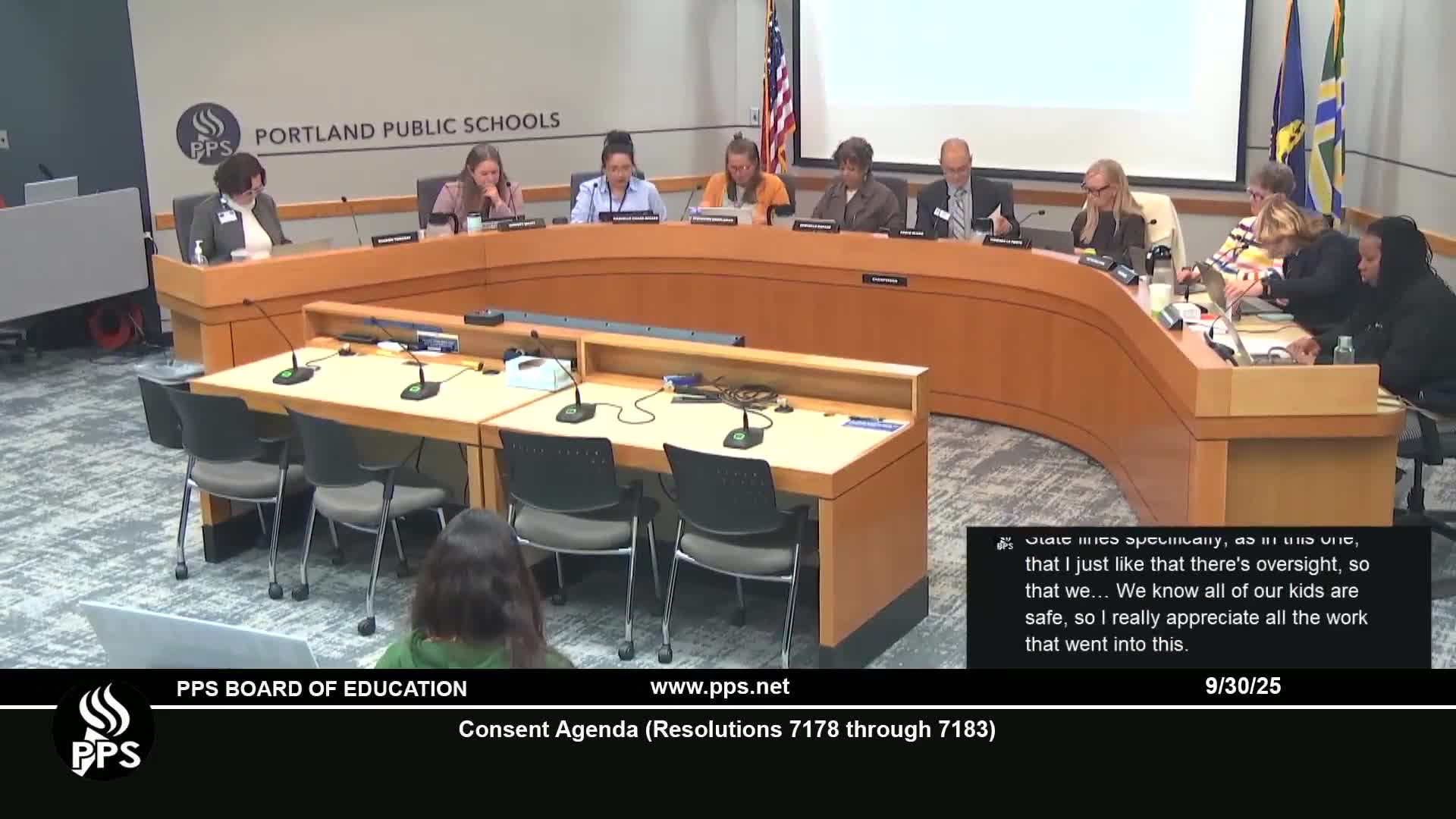Article not found
This article is no longer available. But don't worry—we've gathered other articles that discuss the same topic.
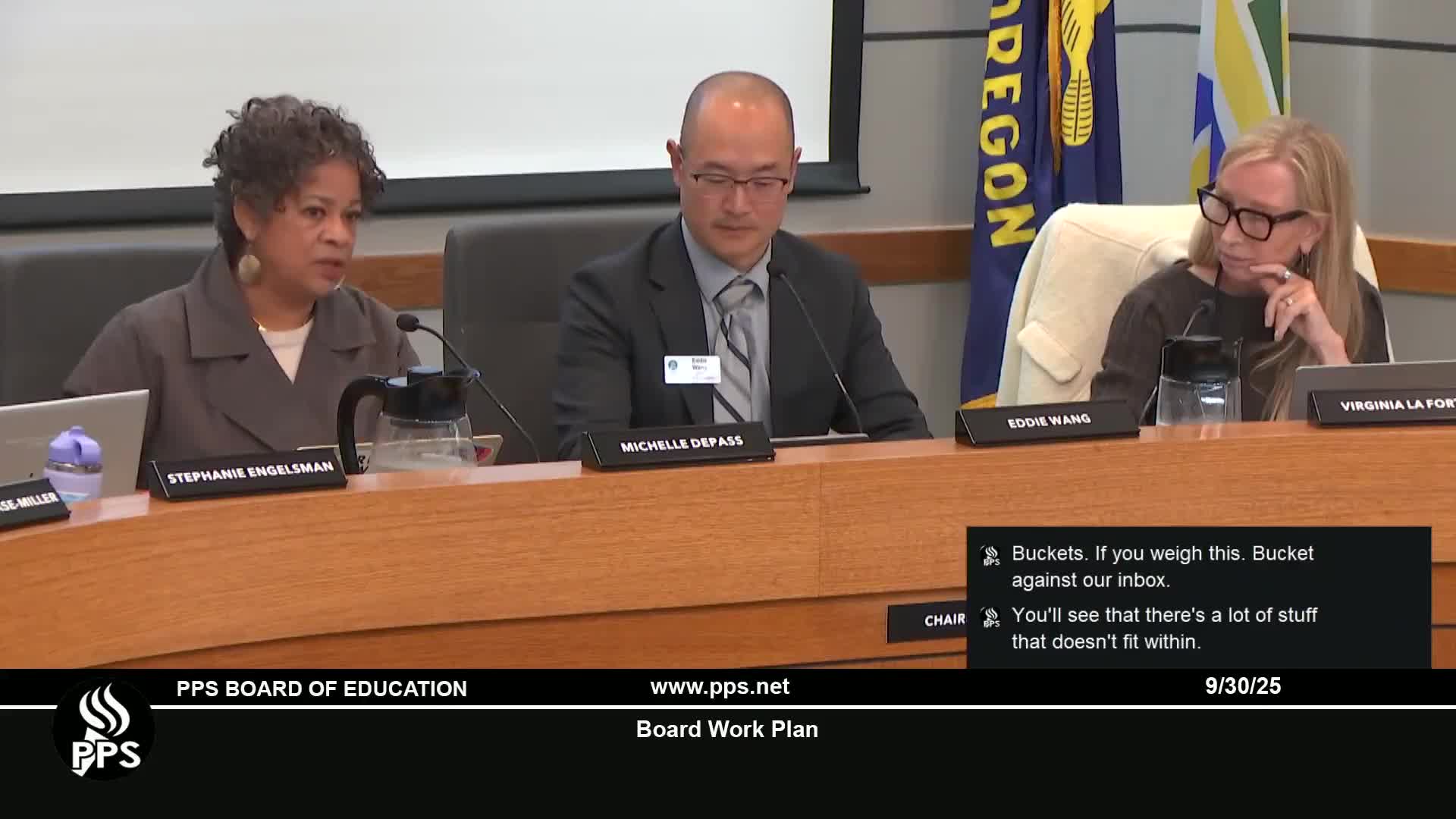
Board signals majority for authorizing monthly stipends; counsel outlines three procedural options
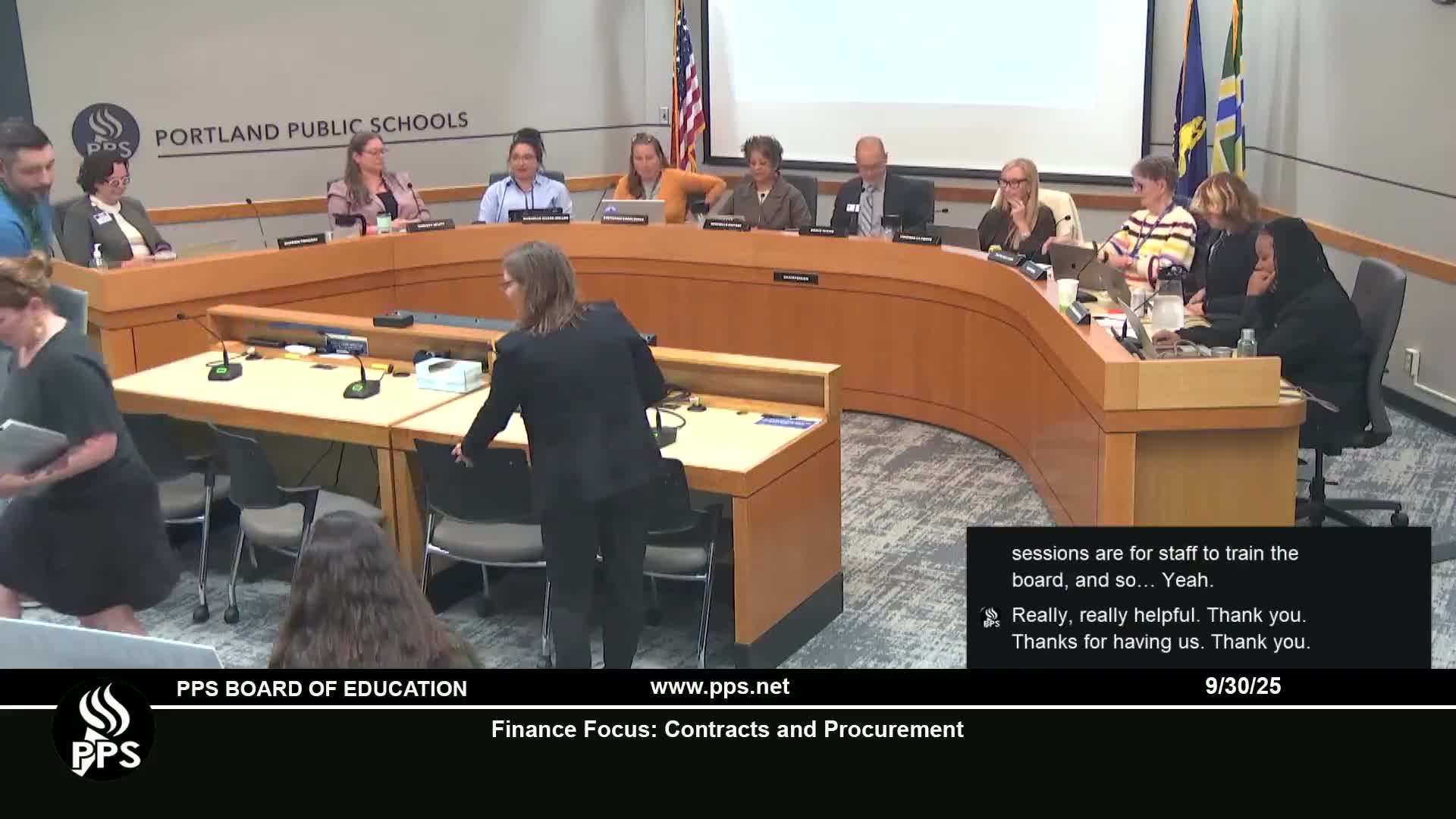
Board members seek clearer committee roles, engagement steps as they shape 2025'26 work plan
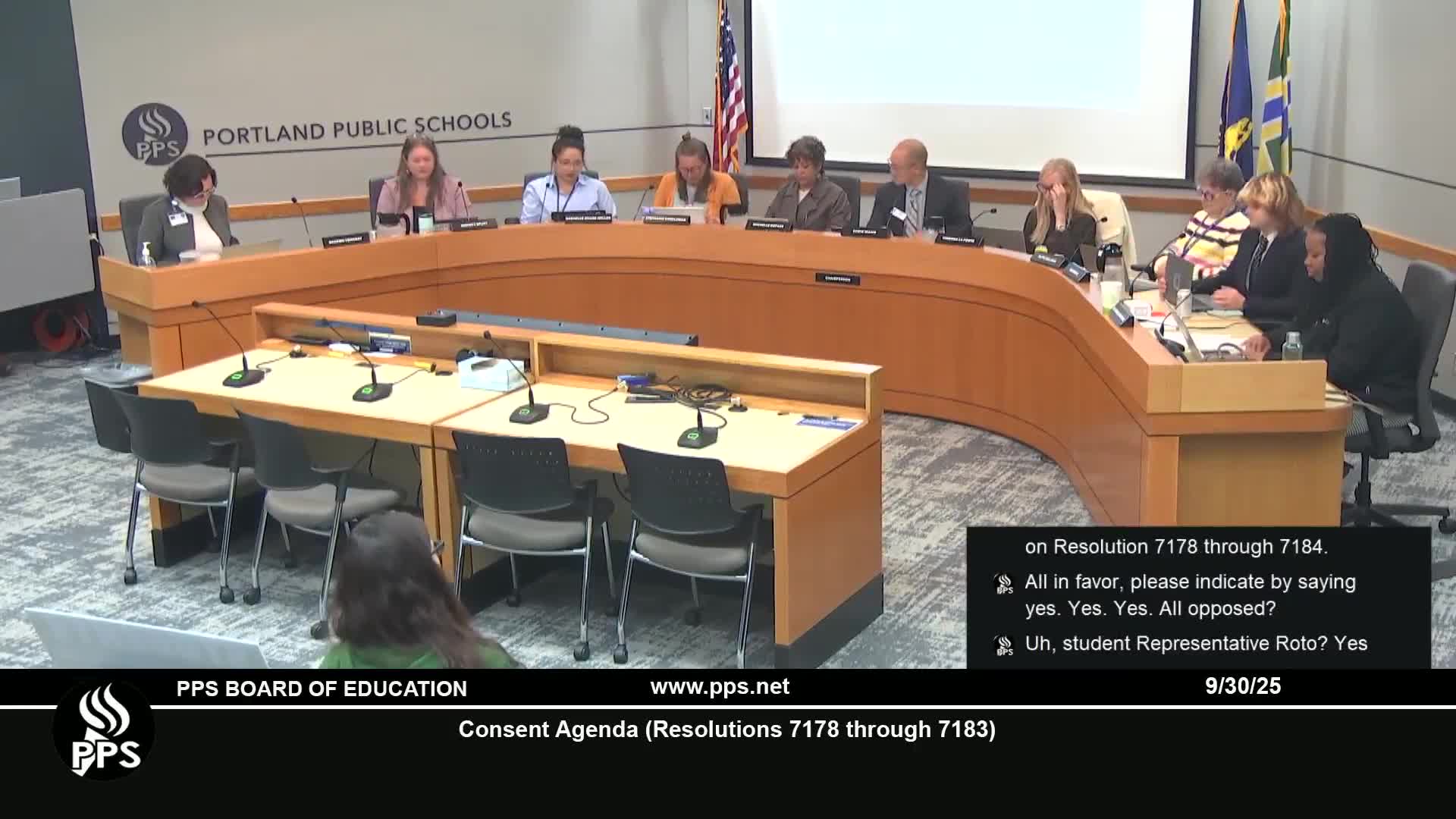
Fund for PPS reports $1.4 million-plus in giving; Champion PPS Schools allocated $930,000 for tutoring and supports
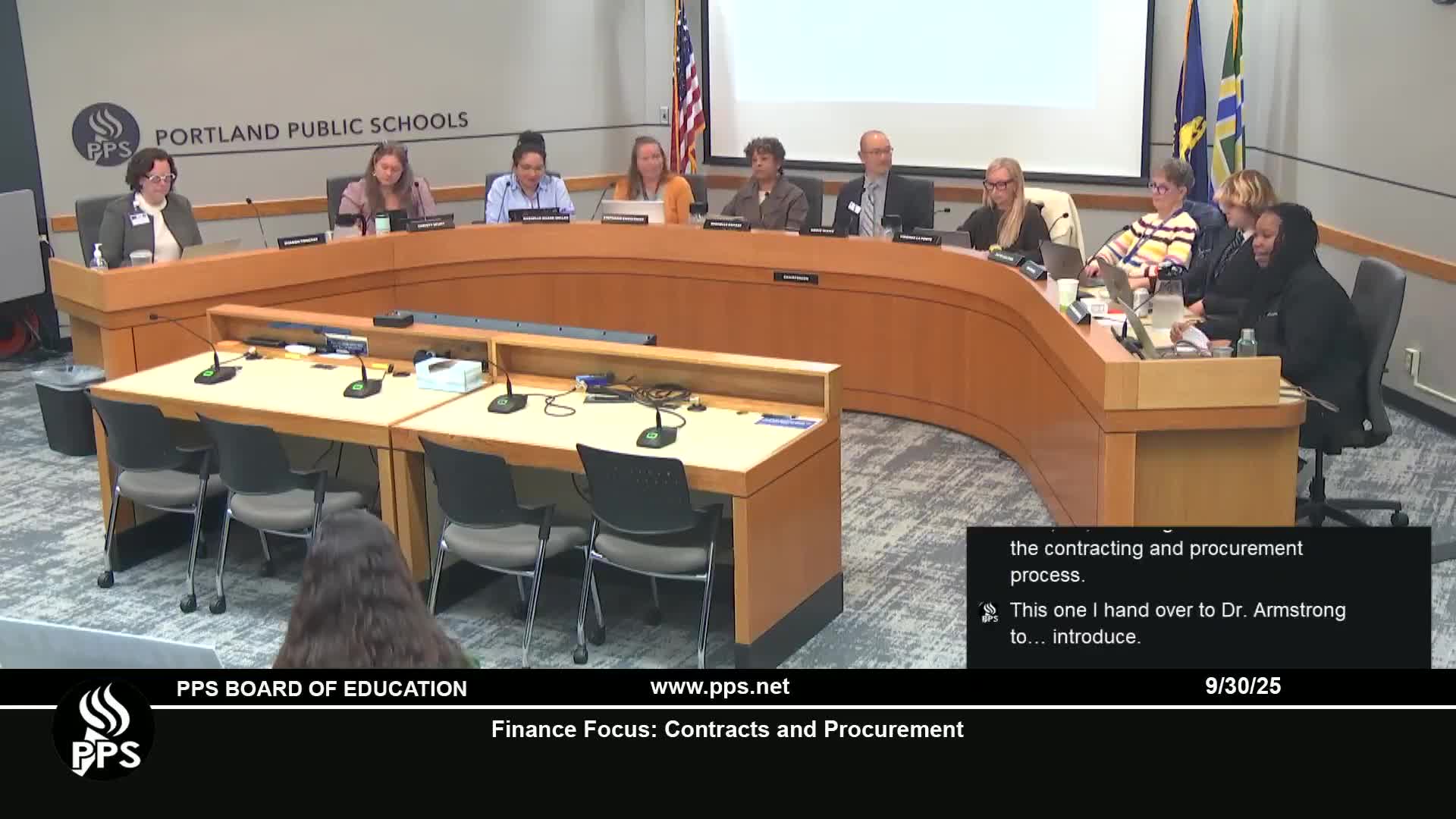
District staff brief board on contracting rules, procurement thresholds and contract review process
